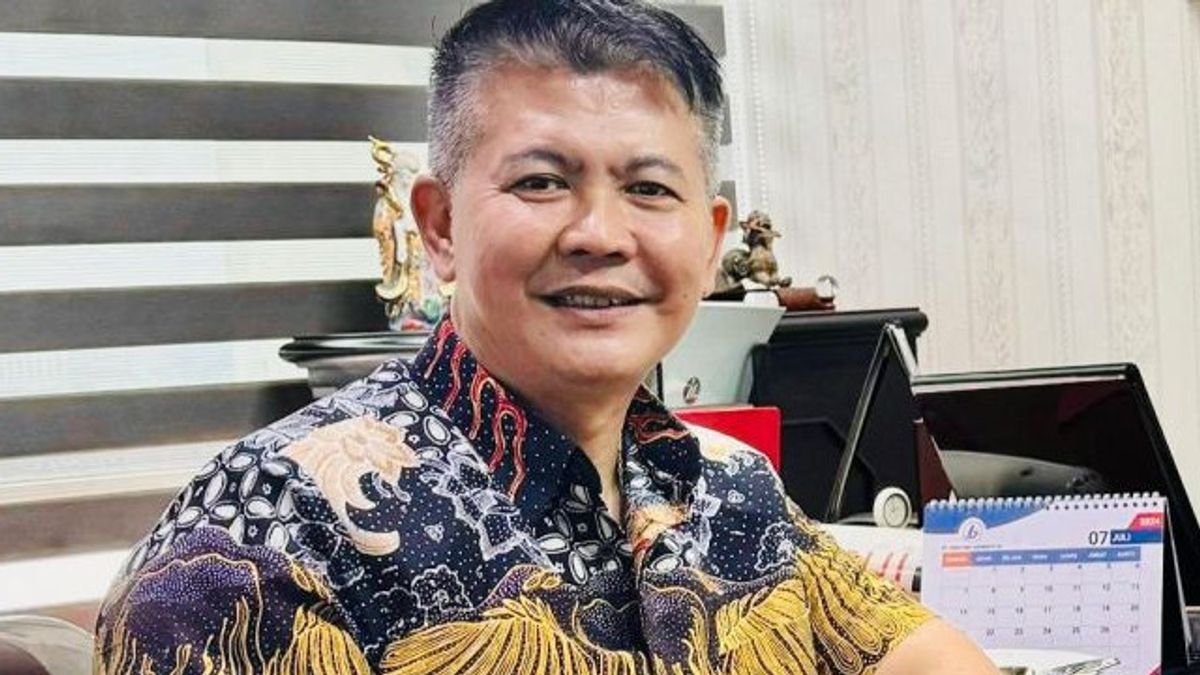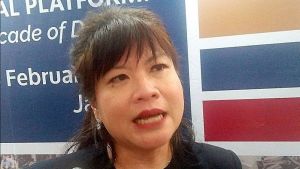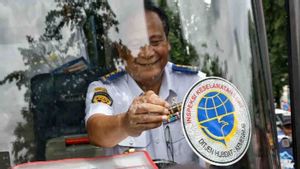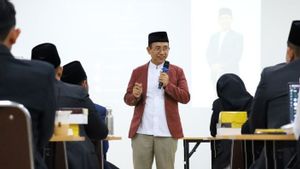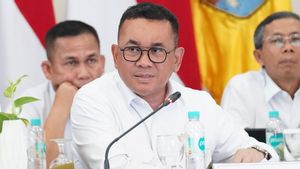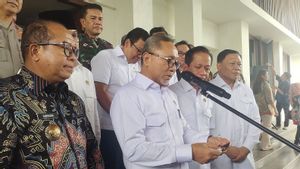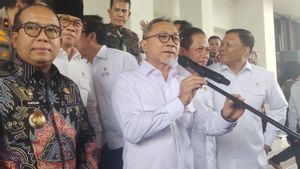JAKARTA - Law and political observer Pieter C Zulkifli assessed that President Prabowo Subianto's speech which stated that corruptors could be forgiven as long as they returned the proceeds of corruption to the state, it needed to be accompanied by concrete actions.
This is because corruption in Indonesia is no longer a matter of individuals, but a systemic problem that demands fundamental reforms.
"Without the courage and consistency of a head of state, eradicating corruption will continue to be a discourse," Pieter said in a statement in Jakarta, quoted by Antara, Saturday, December 28.
On the other hand, the former chairman of Commission III of the DPR RI said that Prabowo's statement that he wanted to forgive corruptors on the condition that he returned his corruption money to the state was part of a corruption eradication strategy that emphasized the recovery of state losses (asset recovery) in accordance with the principles in the UN Convention Against Corruption (UNCAC).
Not only that, he also mentioned the statement of the Coordinating Minister for Legal and Human Rights Yusril Ihza Mahendra who supported the idea by calling it a restorative approach.
According to him, law enforcement of corruption is even said to have brought benefits to the nation's economy, not just revenge.
However, Pieter admits that so far Prabowo's concrete steps in eradicating corruption are still being questioned.
Moreover, in his inauguration speech two months ago, Prabowo acknowledged that there was a state budget leak, but the follow-up to the commitment did not appear real.
"In fact, the composition of the cabinet that he formed has also become a material for criticism. Some of the names in his cabinet have a track record of corruption cases, instead of having escaped legal entanglement through court loopholes," he said.
Pieter emphasized that the history of eradicating corruption in Indonesia shows that the President's role is very decisive.
In the era of President Susilo Bambang Yudhoyono (SBY), big cases such as the Century Bank scandal continued despite dragging the name of his besan, Aulia Pohan.
"The question is, will Prabowo allow the KPK to weaken or vice versa, will he show a real commitment to strengthening this Anti-corruption Institution?" Pieter explained.
He stated that corruption in Indonesia has become systemic, involving the circle of power, bureaucracy, and the law. Money becomes a common thread in recruitment, promotion of positions, to policy making.
It is also what creates a vicious circle that is difficult to break. In fact, the law is often subject to the power of capital.
This situation illustrates how difficult it is to eradicate corruption without comprehensive reform.
"Paralel with these conditions, the future of eradicating corruption in Indonesia is very worrying. This is reflected in the assessment of the Indonesian Corruption Perception Index (IPK) which continues to decline and becomes stagnant. In the last survey of Transparency International in 2023, Indonesia's GPA is only at 34 on a scale of 100," he added.
In addition, Pieter said the GPA score was the same as the score in 2014. He noted that the perpetrators of corruption so far have a political background, both from the legislature and executive elements consisting of members of the DPR/DPRD, Ministers/State Institutions, Governors, Mayors/Regents by 517 people.
"Not to mention the corruptors who have not been touched in the private sector. This condition makes it clear that political corruption is increasingly fertile in this country," said Pieter.
He said the future of eradicating corruption in Indonesia was determined by a humble, firm, and indiscriminate attitude of power in acting, and not giving promises.
"The attitude of elite behavior that is arrogant and arrogant, not hearing the aspirations of the people is the beginning of the failure to formulate a strong system to eradicate corruption," he said.
Pieter said the firm stance of power towards corruptors would accelerate Indonesia's process of becoming a developed country.
Thus, the KPK and the Attorney General's Office (AGO) of the Republic of Indonesia must start to seriously monitor the attitude of elite behavior that is arrogant and arrogant in hearing the aspirations of the people. Because, it is reasonable to suspect that such political elite behavior has a corrupt tendency.
He views Prabowo as having the opportunity to change the narrative. However, without courage and consistency, eradicating corruption will continue to be nonsense.
BACA JUGA:
The reason is, corruption in Indonesia is not only a matter of individuals, but a systemic problem that demands fundamental reforms.
"Without a real step, the vicious circle between money and power will continue to influence the political face of Indonesia," said Prabowo.
He also hopes that Prabowo really understands the gravity of a Head of State. Otherwise, he projects that the legitimacy of his leadership could be threatened by political dynamics that have been left wild in less than five years.
"Indonesia needs leaders who are brave, firm, and sided with the people, not just empty speeches on the international podium," he concluded.
The English, Chinese, Japanese, Arabic, and French versions are automatically generated by the AI. So there may still be inaccuracies in translating, please always see Indonesian as our main language. (system supported by DigitalSiber.id)
